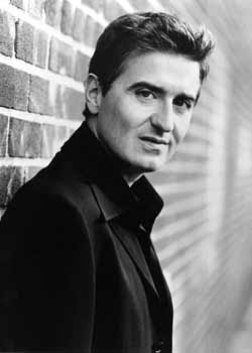Thibaudet brings poetry and bravura to Liszt program at the Broward Center

Jean-Yves Thibaudet
It was an evening of thunder and lightning at the keyboard Monday at the Broward Center for the Performing Arts, as the French pianist Jean-Yves Thibaudet performed a recital devoted to the works of Franz Liszt.
This year marks the 200th anniversary of the birth of the Hungarian composer and piano virtuoso, and Thibaudet has been traveling Europe and North America performing recitals devoted to his works, considered among the most difficult in the repertoire.
Liszt was the archetype of the 19th century virtuoso, a man who defined an era in which pianists and violinists were expected to perform their own works, whose on-stage charisma was so powerful that women reportedly fainted at his performances. As a composer, he had an enormous output, ranging from forward-looking piano and orchestral works that put him in the company of Berlioz and Wagner to trashy operatic paraphrases of the sort produced by his forgotten contemporaries on the touring virtuoso circuit.
Both sides of this composer were on display Monday, with Thibaudet’s selection emphasizing thundering, keyboard-pounding virtuosity, grand sweeps up and down the keyboard and passages in which melodies are surrounding by astonishingly complex and difficult accompaniments. Such programs can be rough on the piano, and at intermission a technician came on stage to retune a Steinway grand that had sustained the equivalent of three or four Beethoven concertos in the first half.
But rather than dazzling the audience from the start with the flashy side of Liszt, Thibaudet began with the lyric six-section work Consolations, in which his warm legato playing brought out the shimmering romanticism of Liszt’s melodies. In Les Jeux d’Eaux à la Villa d’Este, he displayed a delicacy of touch, despite the clearly fiendish difficulty of the music, that made the work sound like a prelude to the music of Debussy or Ravel.
In the extremely rapid runs of Légendes, he displayed a super-articulation of touch that gave the whirl of notes a clicking precision, rather than the blobs of sound they could turn into in lesser hands. And when a melody came surrounded by cascades of notes in both hands, the theme rang out clearly, phrased with style and panache, as if Thibaudet had nothing else to think about and someone else was playing the complex accompaniment.
Isoldens Liebestod, a paraphrase from Wagner’s Tristan und Isolde, came from the lesser end of Liszt’s output, full of sleazy-sounding tremolos and effects that seemed to turn the instrument into a glorified player piano. Yet Thibaudet’s performance of the erotic, insinuating, urgent main theme had a power that – while obviously largely from Wagner – also showed the force of Liszt’s musical personality. He closed with the Tarantella from Venezia e Napoli, a climactic showpiece on an evening of showpieces, that ended with a flourish and Thibaudet’s hands high off the keyboard, as the bravos and applause began.
It may be that an all-Liszt program is a tough sell or that piano recitals—unless the performer is Lang Lang— are not in demand in South Florida, but the Broward Center was at best only half full for this concert. But Thibaudet won repeated cheers, particularly after fiery virtuoso works. He played two encores, this time by other composers (“I think we’ve had plenty of Liszt for tonight,” he said.), Brahms’ Intermezzo in A (Op. 118, No. 2) and Prelude Pathetique by the Russian pianist Shura Cherkassky.
Posted in Performances, Uncategorized
One Response to “Thibaudet brings poetry and bravura to Liszt program at the Broward Center”
Leave a Comment
Tue Feb 8, 2011
at 3:08 pm
1 Comment





Posted Feb 08, 2011 at 4:48 pm by Wolfgang731
This is my personal opinion and nothing more. Regarding the critic’s final paragraph, I really feel that it’s the venue itself that is less than conducive for this type of concert and, therefore, a really tough sell. At 2,700, it is simply too large for a piano recital. The Au-Rene Theatre is fine for Broadway musicals, opera, ballet, orchestral or other types of concert but I can’t imagine a less welcoming space for a chamber concert, except the Jackie Gleason though they no longer program classical concerts of any kind. Just compare the Au-Rene to London’s Wigmore Hall with 545 seats, or Salle Pleyel and Theatre des Champs-Elysees in Paris both with approximately 1,900 seats and you’ll understand what I mean. Piano recitals (among others) are meant to be intimate experiences that draw audiences close to the musician and the music making. Here we have the complete opposite.